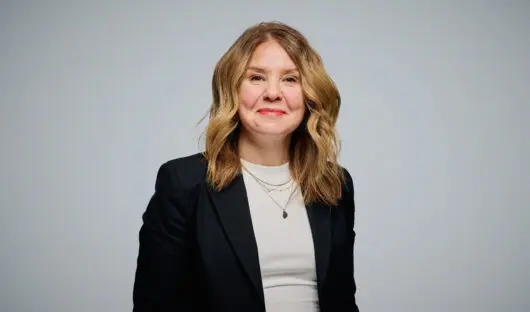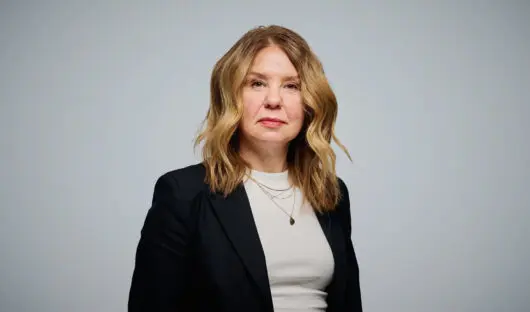Posted on Thursday 17 March 2022
Two years since the UK went into lockdown, young people are still facing cancer alone, say cancer charities
Young Lives vs Cancer and Teenage Cancer Trust say young people with cancer should not be forgotten and should be able to have someone by their side throughout their cancer journey.
Despite covid restrictions relaxing elsewhere, some young cancer patients are still having to go to hospital alone. Young people who are being supported by Young Lives vs Cancer and Teenage Cancer Trust have come forward with heart-breaking accounts of having to face cancer alone.
Last year, the two charities launched a campaign called #Hand2Hold to raise awareness of the experiences of 16 to 25-year-olds who were receiving the news they had cancer, attending appointments or facing treatment for cancer on their own – sometimes for weeks at a time. While the picture has now improved, some young people continue to face cancer alone two years into the pandemic, despite covid restrictions relaxing elsewhere.
23-year-old Hannah, from Kidderminster, was 22 when she was diagnosed with Hodgkin Lymphoma in May 2021 and ended treatment in November 2021. Throughout her treatment, Hannah was not allowed any visitors in hospital with her and relied on her Teenage Cancer Trust funded Youth Support Coordinator, Rosa, for support and to help take in information given to her by doctors.
Hannah said: “I had no visitors throughout any of my treatment. The hardest part was being alone in hospital and having to make difficult decisions about what type of treatment to have without a family member with me. With the doctors, I agreed to start treatment earlier than expected and this was a really scary thing to go through on my own. I struggled to remember everything the doctor told me and wished I had someone there with me to write everything down.
“I am so grateful for my Youth Support Worker, Rosa, who was like a family member during my treatment. She was there for my future appointments, helping me to absorb the information and writing new information from doctors down for me. She also provided so much emotional support during my treatment and having someone to laugh with during that time was so important. I don’t know what I would have done without her.
“All young people with cancer should have the opportunity to have visitors with them throughout their diagnosis and treatment. I feel lucky that I am in my twenties because it would have been really devastating to go through what I did as a teenager.”
Jak, from Swansea, first noticed a spot on his back but was in denial until he started feeling sick and tired and it was itchy, when he went to the doctors they referred him straight away to the hospital. He was 21 when he was diagnosed with melanoma. Jak initially had surgery to remove it but unfortunately he still needed further treatment, a year of immunotherapy.
Having received his diagnosis news over the phone when he was on his own, Jak has been to every appointment, surgery, and treatment visit on his own from the moment he was diagnosed, and says that being alone is tough but that also having to take in and relay all of the information to his friends and family is hard.
Jak said: “I think getting that diagnosis was a lot harder over the phone because it didn’t feel like real life. The first phone call I had, I was at work. I remember going outside on my phone and it just all hit me at once. I was nervous and I was shaking, I remember going red in the face and tears and I thought ‘calm yourself down, go back into work’ and I think now looking back it was a really silly thing to do.
“I had to go in for surgery on my own which was just horrendous, I was so frightened. My mum was worrying like mad and she was sat outside in the car – it was really really cold and she was sat in the car and she didn’t want to keep the car on to waste the petrol with the heating on. I kept telling her ‘go home, keep in the warm’ but she didn’t, she stayed outside she was persistent about staying outside. I was really frightened and I kept saying ‘is there any chance I could have my mum?’”
“One time I was in A&E and I remember looking around and there was a young girl and she had a bandage wrapped round her knee, she was sat between her mum and her dad and I remember thinking ‘it’s nice she can have that comfort round her to get her by’ but then in your head you question ‘why can’t I have that comfort, why have I got to do all this on my own?’”
Jak reached out to Young Lives vs Cancer after seeing the #Hand2Hold campaign on social media last year. The charity has since been able to provide him with support.
The charities found that as well as some young people falling through the cracks and still facing cancer alone, some felt that it was the lack of consistency and clarity around what they could and could not do at hospitals that was hard to navigate.
With such inconsistency in hospital visiting rules across the UK, Young Lives vs Cancer and Teenage Cancer Trust created guidance to help young people feel empowered to ask to be accompanied by their loved ones, if it is safe to do so. If not possible, the guidance suggests alternatives to help with the challenges of being alone such as video calls and recording what is said in appointments.
Guidance produced by Young Lives vs Cancer and Teenage Cancer Trust aimed to support young people with cancer through the process, especially if trying to do it on their own. This guidance was shared amongst NHS Trusts.
Helen Gravestock, Associate Director of Policy, Influencing and Voice at Young Lives vs Cancer, said: “For many, life may seem to be getting back to some sort of normality, yet young people with cancer up and down the UK continue to go to hospital alone. The picture may have improved across the UK since the toughest restrictions last year but there are still young people hearing they have cancer, going for treatment and follow-up appointments without a hand to hold. It’s not right.
“The picture is inconsistent for young people across the UK, while one young person may have a parent or friend by their side, another is alone. We believe every young person should receive age appropriate care when facing cancer, which includes having someone by their side”
Dr Louise Soanes, Chief Nurse at Teenage Cancer Trust, said: “No young people should fall through the gaps. It is worrying that visiting restrictions vary from hospital to hospital, as this means some young people will have a worse experience in treatment than others.
“Having cancer treatment, receiving a diagnosis, and responding to treatment, is an incredibly scary and isolating experience for most people, doing this alone makes this worse.
“Receiving information on their diagnosis or treatment plan without another person there to listen in, young people must reshare and explain complex information with family members, friends, or a partner, whilst still trying to process what they have just been told.
“Young people should be empowered and ensure they don’t go through treatment alone. That’s why, together with Young Lives vs Cancer, we want all young people, where safe and possible, have crucial loved ones with them and a hand to hold, particularly during some of the most challenging times of their life.”
Notes to Editor
We know that having to go to appointments and treatment alone has been the biggest concern for young cancer patients throughout the pandemic. In a Facebook poll in 2021, of 100 young people that Young Lives vs Cancer supports, 90% said they had experienced treatment alone in hospital during the pandemic.
About Hand2Hold
In 2021, cancer charities Teenage Cancer Trust and Young Lives vs Cancer launched #Hand2Hold, a campaign to raise awareness of one of the biggest challenges for young cancer patients during the coronavirus pandemic – attending appointments or receiving treatment without someone in hospital to support them. Since launching the campaign the picture has improved, however, there are still young cancer patients having to face cancer alone.
Related Posts
Young Lives vs Cancer Responds to the 10-Year Health Plan for England
Our CEO Rachel Kirby-Rider responds to UK Government’s Welfare Bill
Young Lives vs Cancer responds to news of UK Government passing Universal Credit and Personal Independence Payment (PIP) Bill

